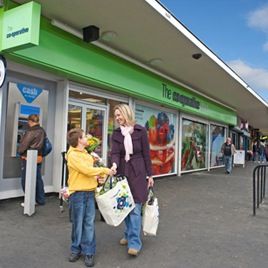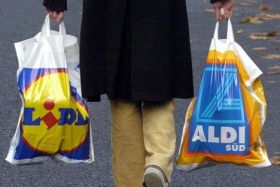Food Manufacturing News
Ambitious move comes as retailer looks to ‘consolidate position as number one in the competitive convenience market’
The Co-operative is to open 54 shops on pub sites over the next 2 years as it looks to step up expansion of its 2,000-strong convenience store estate.
Most of the new stores will be built on car parks and other land next to the actual pubs, with the rest coming from converted pubs.

The move will help the retailer grow its estate by 150 in each of the next five years, and involves around a quarter of the 202 pub sites that retail property group New River bought from brewer Marston’s in November for £90 million.
Most of the sites are located in central, eastern and northern England, and the first shop is set to open its doors early next year.
Each store will be between 3,000 sq ft and 4,500 sq ft, with almost 200,000 sq ft of new retail space set to be developed in total.
Steve Murrells, chief executive of The Co-op’s retail division, said: “Our focus is on convenience stores and a move away from larger stores, as we look to highlight our strengths and consolidate our position as number one in the competitive convenience market.”
Latest Kantar Worldpanel data shows strong performances from hard discounters, Farmfoods, and Waitrose
Aldi has reached a record market share in the UK grocery sector.
The latest grocery share figures from Kantar Worldpanel, published today for the 12 weeks ending 30 March 2014, show that the hard discounter has achieved its highest ever growth of 35%, boosting the retailer to a record market share of 4.6%.
The figures also show what appears to be a dramatic market slowdown, with growth of only 0.6%.

However, this is distorted by the late falling of Easter this year, which was included in the 2013 period but not in the current data. Kantar Worldpanel estimates that Easter accounts for market growth of 0.9%. This means that a ‘corrected’ market growth would stand at 1.5%, which is still low by historical standards.
Edward Garner, director at Kantar Worldpanel explains: “Amid a challenging market backdrop, individual retailer growth might be expected to be restricted. This is certainly not the case for Aldi, and Lidl also experienced strong growth in a record breaking month, and now accounts for 3.4% of the market.
“All of the ‘big four’ supermarkets have faced declining sales over the past 12 weeks, which has been accentuated by the late falling of Easter. Nevertheless, they have also seen worrying share declines, with the most resilient performance coming from Asda this period.”
Waitrose continues to hold on to its record 5% share reached last period, while The Co-operative appears to have stemmed its share losses, managing to hold its current 6.1% share over our past four reports. Frozen food outlet Farmfoods is performing well, reaching a record share of 0.8%.
Supermarkets have been urged to end buy one get one free (BOGOF) deals to cut “morally repugnant” food waste.
A report by the House of Lords European Union Committee said that 15 million tonnes of food is wasted in the UK each year.
And it urged retailers to behave more responsibly with farmers and avoid cancelling orders at the last minute.
 However, the British Retail Consortium told the BBC that the report “had not appreciated what is already happening”.
However, the British Retail Consortium told the BBC that the report “had not appreciated what is already happening”.
In the report, the peers also criticised the EU’s “fragmented and untargeted” attempts to tackle the problem.
The committee is calling for more surplus food to be passed to charities and food banks.
The report said retailers were able to pass on food waste “from the store to the household” by the use of special offers such as BOGOF deals.
Committee chair Baroness Scott, said: “Not only is food waste morally repugnant, but it has serious economic and environmental implications.
“The fact that 90 million tonnes of food is wasted across the EU each year shows the extent of the problem and explains why we are calling for urgent action.”
The committee’s demands include a five-year plan by the European Commission to reduce waste across the EU.
The amount of food discarded by consumers in industrialised nations is equivalent to nearly the entire level of net food production of sub-Saharan Africa, the committee noted.